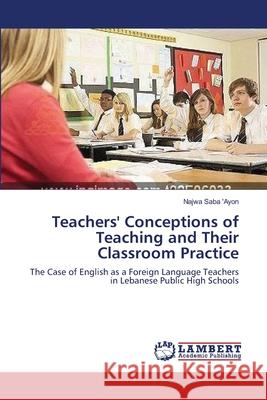Teachers' Conceptions of Teaching and Their Classroom Practice » książka
Teachers' Conceptions of Teaching and Their Classroom Practice
ISBN-13: 9783659409820 / Angielski / Miękka / 2013 / 240 str.
In Lebanon, the 1997 revised English curriculum has as one of its objectives to enable learners to communicate effectively in English. To meet such an objective, the reformers called for the use of cooperative learning (CL) as it maximises the learners' exposure to meaningful input and output in a democratic, cooperative environment. However, to date a lot of the graduates from Lebanese Public High Schools (LPHS), unlike their counterparts in the private sector, are not proficient enough in English to produce one complete sentence in that foreign language. This book, therefore, investigates the extent to which the conceptions of teaching that LPHS teachers of English as a foreign language (EFL) have, in general, and of CL in particular, are congruent with the curricular reforms and hence implemented into their classroom practice, thereby investigating one possible reason for their graduates' low proficiency in English. To this end, this book examines the factors that impact on teachers' conceptions and practice. This analysis should help curriculum reformers, teacher trainers, school officials and teachers ensure better implementation of reforms and hence more proficient learners.
In Lebanon, the 1997 revised English curriculum has as one of its objectives to enable learners to communicate effectively in English. To meet such an objective, the reformers called for the use of cooperative learning (CL) as it maximises the learners exposure to meaningful input and output in a democratic, cooperative environment. However, to date a lot of the graduates from Lebanese Public High Schools (LPHS), unlike their counterparts in the private sector, are not proficient enough in English to produce one complete sentence in that foreign language. This book, therefore, investigates the extent to which the conceptions of teaching that LPHS teachers of English as a foreign language (EFL) have, in general, and of CL in particular, are congruent with the curricular reforms and hence implemented into their classroom practice, thereby investigating one possible reason for their graduates low proficiency in English. To this end, this book examines the factors that impact on teachers conceptions and practice. This analysis should help curriculum reformers, teacher trainers, school officials and teachers ensure better implementation of reforms and hence more proficient learners.











